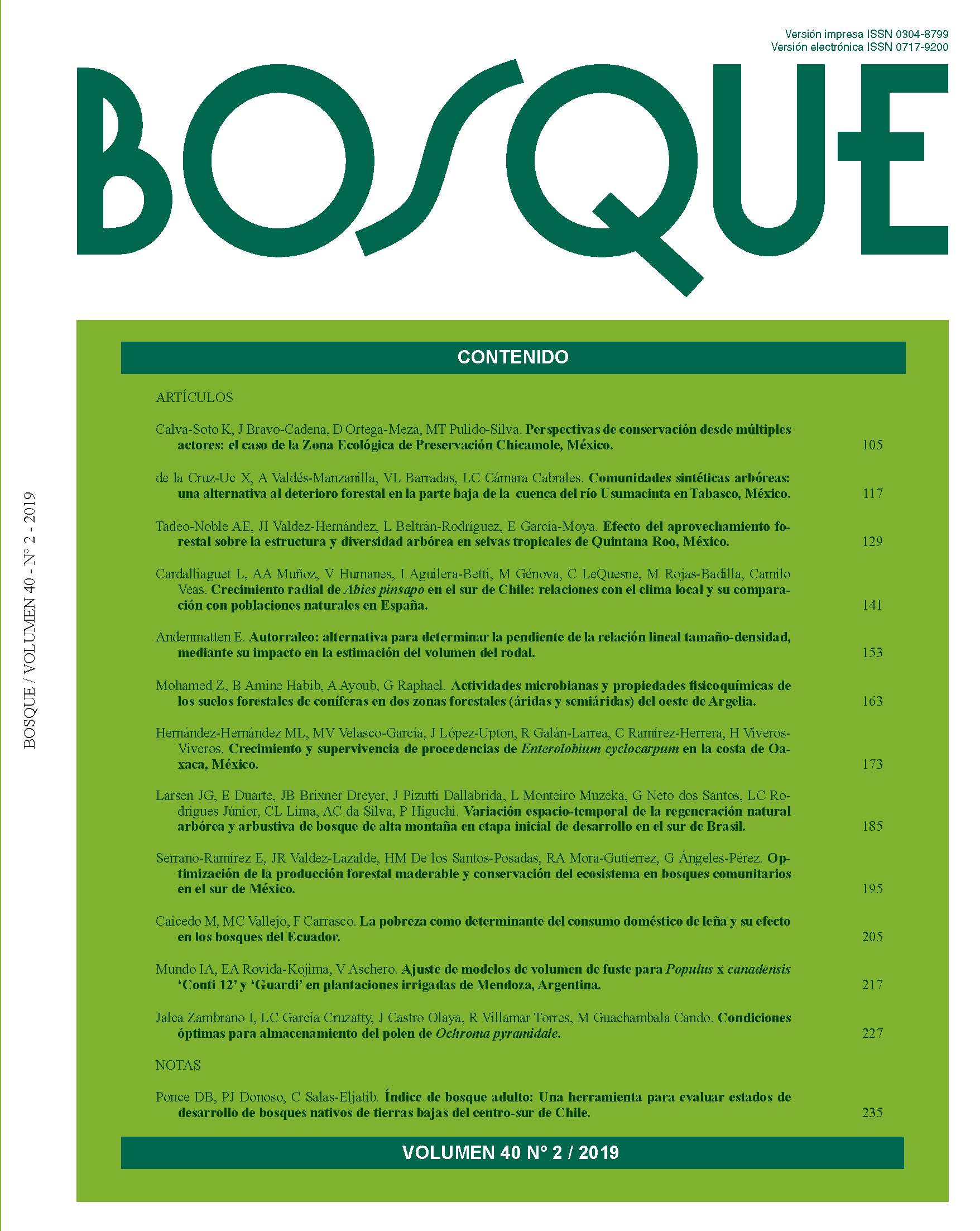Main Article Content
Aug 6, 2019
Abstract
The purpose of this research was to analyze poverty as a determinant factor of domestic consumption of wood and its effect in deforestation in Ecuador. To achieve this, we have processed data from the population and housing census and from household surveys carried out during the last 35 years, forest cover data and a National Forest Assessment. This work makes two contributions. On the one hand, it studies and quantifies deforestation originated by wood consumption, which has been scantily analyzed in Ecuador. On the other hand, it provides a methodological approach that allows a precise accounting of this information through an innovative model of economies of scale, which assumes diminishing marginal consumptions in households. We study the relationship between fuel wood consumption and the state of household poverty through a multivariate analysis that incorporates socioeconomic and demographic variables. With these elements, we show that the largest share of wood consumption does not result from subsistence consumption, but from commercial and productive consumption. For this reason, domestic fuel wood consumption for cooking barely explains deforestation. We have estimated that, from the 49,497 hectares of annual deforested area in the country, 430.6 hectares of forest are affected by the consumption of this resource.


